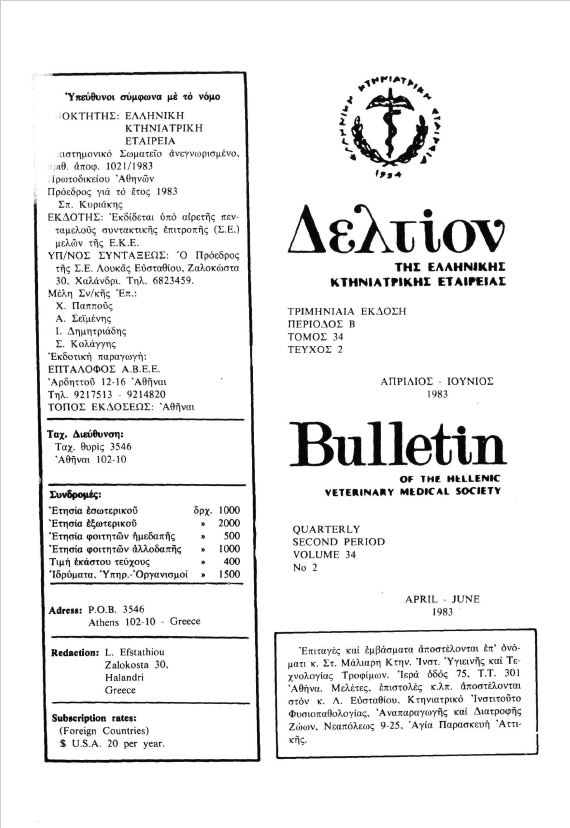An investigation of the Presence of aflatoxins in feeds in Greece
Abstract
The great importance of aflatoxins' toxicity together with the fact that their existence in feeds has not examined intensively in Greece, were the reasons for undertaking this investigation in order to determine whether a potential problem exists and if so, to study the extent of this problem. For that purpose 450 samples, of different kinds of feeds, taken randomly from all over the country between the years 1974 and 1977, were examined. The data obtained can be concerned as encouraging, since only 23 samples (5,11%) were confirmed as positive, and the concentrations of aflatoxins were, most of all, below the European Economic Community tolerances for feeds. Considering that nobody can prejudge the repeatability of these favourable data it is imposed to control continually and systematically the aflatoxin level in feeds and to establish a relative legislation in our country.
Article Details
- How to Cite
-
ΒΑΣΙΛΟΠΟΥΛΟΣ Β., ΣΠΑΗΣ Α. Β., ΚΟΥΦΙΔΗΣ Δ., & ΧΑΤΖΗΓΕΩΡΓΙΟΥ Γ. (2019). An investigation of the Presence of aflatoxins in feeds in Greece. Journal of the Hellenic Veterinary Medical Society, 34(2), 132–148. https://doi.org/10.12681/jhvms.21590
- Issue
- Vol. 34 No. 2 (1983)
- Section
- Articles

This work is licensed under a Creative Commons Attribution-NonCommercial 4.0 International License.
Authors who publish with this journal agree to the following terms:
· Authors retain copyright and grant the journal right of first publication with the work simultaneously licensed under a Creative Commons Attribution Non-Commercial License that allows others to share the work with an acknowledgement of the work's authorship and initial publication in this journal.
· Authors are able to enter into separate, additional contractual arrangements for the non-exclusive distribution of the journal's published version of the work (e.g. post it to an institutional repository or publish it in a book), with an acknowledgement of its initial publication in this journal.
· Authors are permitted and encouraged to post their work online (preferably in institutional repositories or on their website) prior to and during the submission process, as it can lead to productive exchanges, as well as earlier and greater citation of published work.



